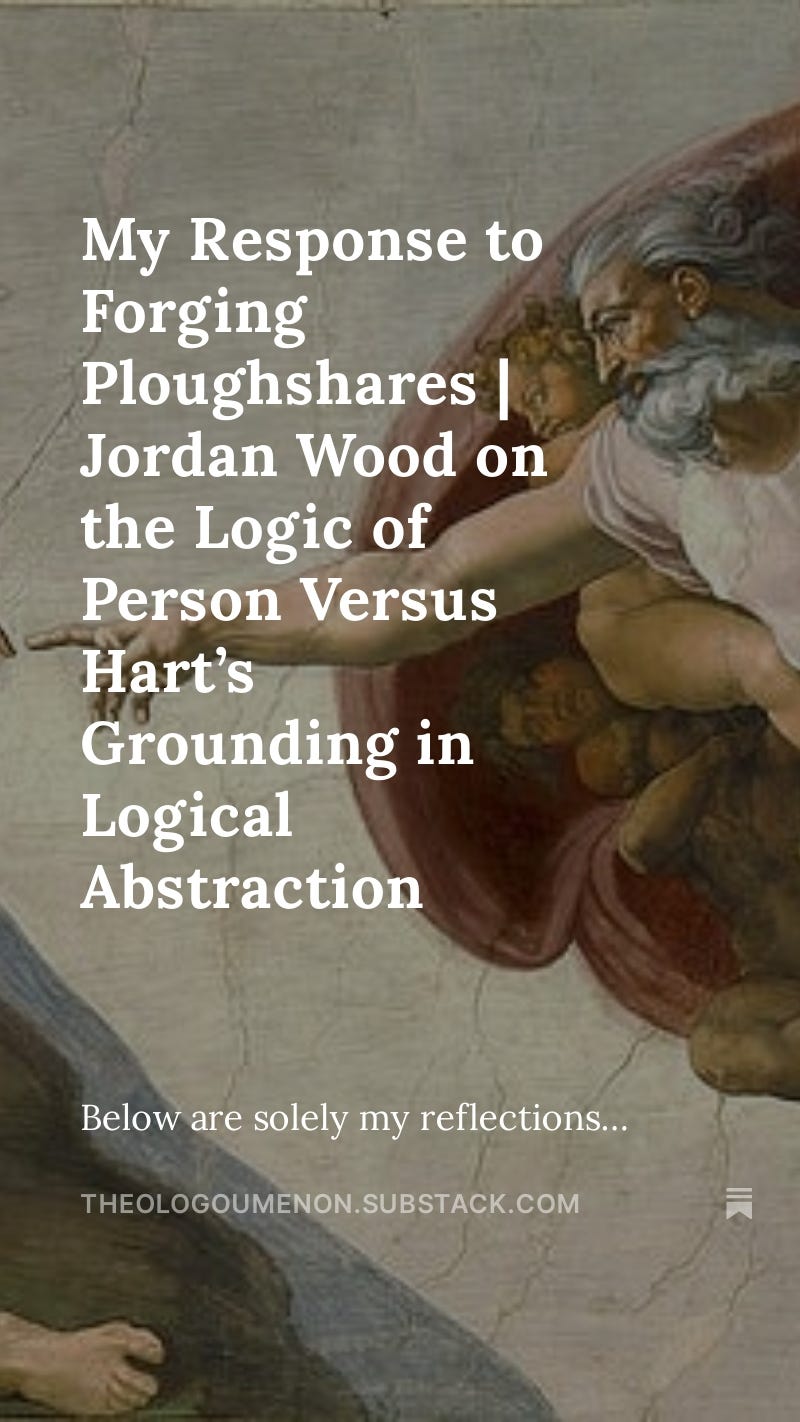My Response to Forging Ploughshares | Jordan Wood on the Logic of Person Versus Hart’s Grounding in Logical Abstraction
Below are solely my reflections as evoked from listening to a conversation at Forging Ploughshares | Jordan Wood on the Logic of Person Versus Hart’s Grounding in Logical Abstraction
Might we acknowledge w/Jenson & Bracken the possibility of a tri-polar presence of God within a three domain model of reality (infinitely & timelessly, eternally & everlastingly, temporally & transiently) and, in every domain, identify Jesus & the Son, constitutively, contra any concrete Logos asarkos & sans any obeisance to sequence.
This is to distinguish between absolute theo-constitution & relative theo-manifestation & so will relativize becoming, which will, therefore, refer to theophanic or revelatory – not constitutive – phenomena. While the latter will still give rise to all manner of legitimate metaphysical inquiry & beg valid questions per analogical grammars, e.g. infinite-eternal-temporal simultaneity, those are categorically distinct from any dialectical logic of persons, e.g. hypostatic positivity, as another invocation of mutual coinherence.
Our perichoretic logics only ever set forth vague heuristics, positing persons not principles, that will refer to certain conditions regarding the possibilities of various empirical facts: trinitologically, we refer to the same nature, different persons; hypostatic union – same person, different natures; cosmotheandrically – differently natured creatures, e.g. shadows & vestiges, same universal personal omnipresence; and theotically – differently natured persons, both images & likenesses, same eternal personal relation of love or mutual indwelling.
These logics of different types of coinherence don’t represent explanatory ambitions, e.g. mediating metaphysical principles, but they do offer exploratory heuristics, e.g. Incarnation pre-eternally grounds both the divinely human & humanly divine.
Such heuristics stipulate to concrete facts, persons even, Who’ll existentially fulfill our interpersonal longings with an operative knowledge of Love. Who knows, maybe our gnoseological knowledge of genera & universals will grow epectatically, too, for those so disposed!





